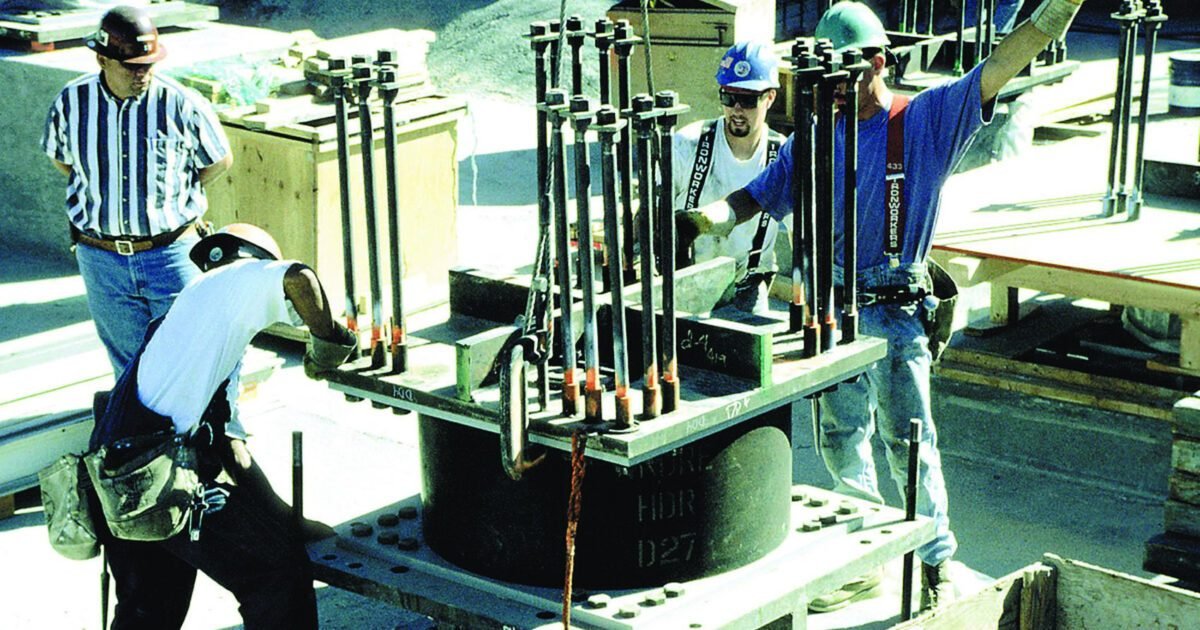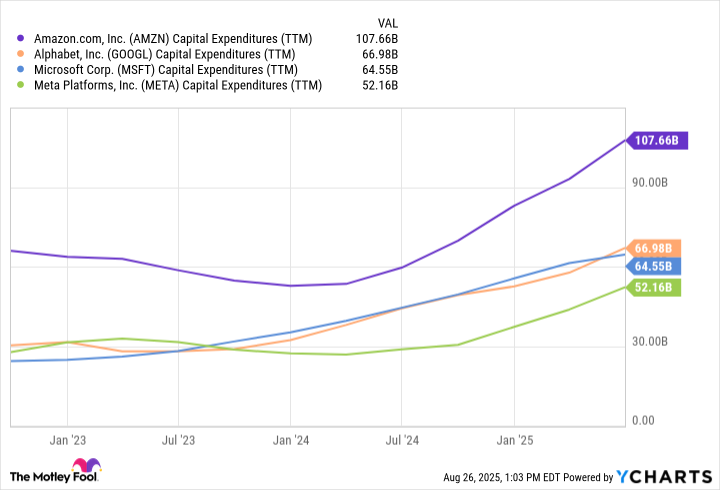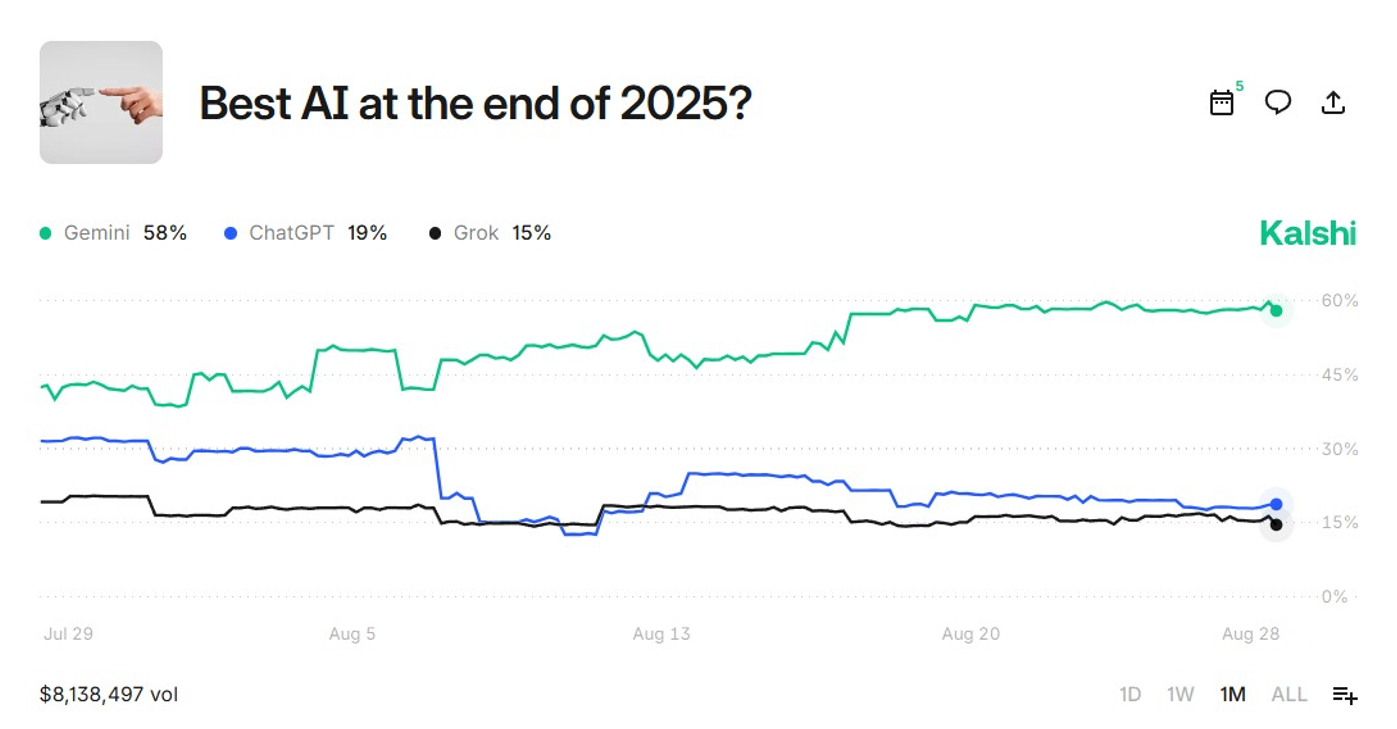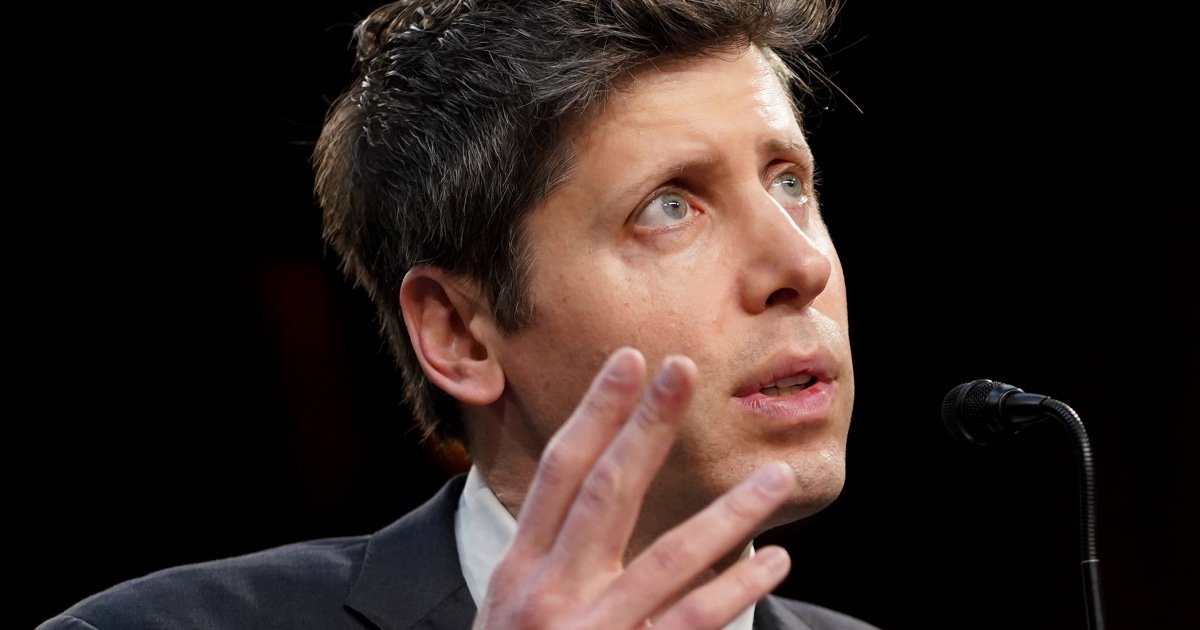AI Insights
Protect the dignity of workers as use of artificial intelligence increases, archbishop says in Labor Day statement

As the use of artificial intelligence (AI) increases in the workplace, we must “advocate for the responsible use of technology, robust protection for those vulnerable to exploitation,” said Archbishop Borys Gudziak in a statement for Labor Day (Sept. 1). Archbishop Gudziak echoed Pope Leo XIV’s encouragement for the Church to turn to its social teaching in response to AI.
“My brother bishops and I are particularly mindful those among us who are already vulnerable—immigrant workers, farm laborers, low-wage earners, and young people—who often suffer the greatest effects of economic disruptions. Catholics should insist that the benefits of emerging technology are shared equitably.”
Archbishop Gudziak of the Ukrainian Catholic Archeparchy of Philadelphia is chairman of the U.S. Conference of Catholic Bishops’ (USCCB) Committee on Domestic Justice and Human Development.
Here is the complete Labor Day Statement:
Labor Day Statement: Promoting The Dignity of Workers in the Rise of AI
Each Labor Day, Americans reflect on the sacred dignity of work and those who perform it. All are seeing the rise of artificial intelligence in our lives – at home and at work. People wonder what impact AI will have on their jobs or those of loved ones. While technological advances offer great promises, as followers of Christ, we believe that technology should enrich the sacredness and dignity of human labor.
From the beginning, Scripture tells us that God placed humans in the garden to “cultivate and care for it” (Genesis 2:15). Ever since, work has been a form of continued participation in God’s creation. AI can be a tool to enhance our work, making it more efficient and creative. To offer one example from healthcare, AI could very well aid in the important development of vaccines, medicines, and even the diagnosis of disease. Yet this should never happen at the expense of human dignity. In patient care, there is a risk that AI could attempt to replace human compassion, or supplant human expertise in medical evaluation. . In many industries, a number of workers could lose their jobs, impacting families and communities. Such scenarios will need to be carefully considered in virtually every sector of the economy.
Pope Leo XIV has underscored this priority. He has encouraged people to approach AI with “responsibility and discernment,” ensuring it serves the common good and benefits all people. History warns us of the consequences when rapid technological advances are used without ethical discernment. In Rerum Novarum, Pope Leo XIII cautioned that the Industrial Revolution led to a troubling gap in wealth and power, deepening inequality and fueling social instability. Today, as we experience an “AI revolution,” we must learn from the past. Indeed, this is one of the very reasons our Holy Father chose the name Leo XIV.
In many industries, current approaches to AI are already reshaping the world of work. The Holy See’s document on AI, Antiqua et Nova, highlights two threats AI poses to the dignity of labor. First, AI can “deskill” workers, reducing them to rigid and repetitive tasks and eroding their ability to carry out creative or complex work independently. Second, AI can displace workers altogether. These risks touch every level of employment—from customer service workers and young people seeking entry-level jobs to knowledge-based professionals in white-collar roles. Given AI’s potential to transform entire sectors of the economy, now is the time for deeper dialogue between workers and decision makers to discern common causes and shared solutions.
My brother bishops and I are particularly mindful those among us who are already vulnerable—immigrant workers, farm laborers, low-wage earners, and young people—who often suffer the greatest effects of economic disruptions. Catholics should insist that the benefits of emerging technology are shared equitably. Workers themselves—especially through labor unions and worker centers—should be included in the business and policy decisions that will shape the world of work going forward. Wealth and power should not become concentrated in the hands of a privileged few, leaving others excluded or discarded.
We must advocate for the responsible use of technology, robust protection for those vulnerable to exploitation, a social safety net that allows people to avoid the cycle of poverty, and fair treatment of all workers. The government should address the challenges of AI with a sound legal and regulatory framework.
As we celebrate this Labor Day, let us turn in prayer to Saint Joseph the Worker, the humble carpenter who modeled dignity, diligence, and care through his daily labor and love of family. Through his intercession, may we protect the rights of all workers, advocate courageously for the vulnerable, and ensure that technological progress always honors the sacredness of human work.
Let us commit ourselves, through prayer and action, to building a future in which every worker finds dignity, security, and purpose. Saint Joseph the Worker, pray for us!
AI Insights
Prediction: This Monster Artificial Intelligence (AI) Chip Stock Will Soar in September (Hint: It’s Not Nvidia)

Broadcom is scheduled to report earnings on Sept. 4.
Over the past several weeks, investors have been bombarded with a wave of updates as companies reported earnings results for the second calendar quarter. For technology investors, artificial intelligence (AI) remains the dominant theme fueling the sector higher.
As I write this (mid-day on Aug. 27), all of the “Magnificent Seven” have posted earnings — with the lone exception being Nvidia (NVDA -3.38%), which reports later today. Still, the breadcrumbs left by big tech point to an undeniable trend: Spending on AI infrastructure is accelerating.
While this is undeniably bullish for graphics processing unit (GPU) leaders like Nvidia and Advanced Micro Devices, it also creates a powerful tailwind for systems integration specialist Broadcom (AVGO -3.70%).
With Broadcom slated to report earnings on Sept. 4, I predict the stock is well-positioned to rally.
Let’s explore why I’m optimistic about Broadcom’s upcoming earnings report, and assess whether the stock is a compelling buy at current levels.
Follow big tech’s breadcrumbs
Global hyperscalers such as Amazon, Alphabet, Microsoft, and Meta Platforms have been spending record sums on capital expenditures (capex) over the last few years. While this clearly bodes well for Nvidia and AMD, Broadcom has also been a quiet beneficiary of rising AI infrastructure investment.
Data by YCharts.
One of Broadcom’s key AI growth drivers comes from its application-specific integrated circuits (ASICs) business. These custom silicon solutions allow customers to design chips that are optimized for their unique workloads.
By integrating purpose-built performance with compute power efficiency, Broadcom’s ASICs help hyperscalers lower their total cost of infrastructure relative to relying solely on off-the-shelf accelerators from the likes of Nvidia. This becomes highly desirable as training and inferencing workloads scale and become increasingly complex as more sophisticated AI use cases unfold.
Broadcom’s networking division is also positioned to benefit materially from the ongoing AI infrastructure cycle. As big tech continues to pour hundreds of billions of dollars annually into GPU deployment, Broadcom’s supporting infrastructure becomes an indispensable unsung hero.
The company’s portfolio of high-performance switches, interconnects, and optical components delivers low-latency, high-bandwidth connectivity to keep next-generation accelerators running at full speed. In essence, the company’s networking gear represents a foundational layer of AI data center construction — ensuring scalability and efficiency as workloads expand.
Image source: Getty Images.
Management likes the stock — shouldn’t you?
With a forward price-to-earnings (P/E) multiple of 45, Broadcom certainly isn’t trading at a discount. In fact, its multiple sits near peak levels seen during the AI revolution.
Data by YCharts.
Even so, the company’s board of directors authorized a $10 billion stock buyback program back in April. Share buybacks at elevated valuations can point to a strong signal: Management remains confident in Broadcom’s long-term growth trajectory, underscored by ongoing hyperscaler investment. On a more subtle note, sometimes companies repurchase their own shares when management thinks the stock is undervalued.
These dynamics could suggest that Broadcom is positioned for sustained, robust earnings growth, which could fuel further valuation expansion — even in the face of a premium multiple.
Is Broadcom stock a buy right now?
For the last few years, the AI trade has largely surrounded Nvidia and the cloud hyperscalers. Yet as infrastructure spending accelerates, the scope of the AI opportunity is broadening to other mission-critical enablers such as Broadcom. Custom chips, high-performance networking equipment, and integrated systems are now just as essential as securing GPUs — and Broadcom sits squarely at this intersection.
In my eyes, Broadcom is approaching its own “Nvidia moment” — a potential inflection where the narrative begins to recognize Broadcom as a supporting pillar of AI infrastructure and not simply an ancillary beneficiary of these tailwinds.
Against this backdrop, I predict that Broadcom’s September earnings report will reinforce its strategic importance in the AI landscape — fueling investor enthusiasm and a further rerating of the stock. For these reasons, I see Broadcom as a compelling opportunity to buy and hold over a long-term time horizon.
Adam Spatacco has positions in Alphabet, Amazon, Meta Platforms, Microsoft, and Nvidia. The Motley Fool has positions in and recommends Advanced Micro Devices, Alphabet, Amazon, Meta Platforms, Microsoft, and Nvidia. The Motley Fool recommends Broadcom and recommends the following options: long January 2026 $395 calls on Microsoft and short January 2026 $405 calls on Microsoft. The Motley Fool has a disclosure policy.
AI Insights
AI Model Betting Is the New Fantasy Football

Sports gambling has DraftKings. Political junkies have PredictIt. And now the world’s nerdiest corner — the artificial intelligence (AI) scene — has its own set of bettors, where people wager actual money on whether Google’s Gemini will dunk on OpenAI’s GPT-5 this month.
AI Insights
How Silicon Valley is using religious language to talk about AI

TORONTO — As the rapid, unregulated development of artificial intelligence continues, the language people in Silicon Valley use to describe it is becoming increasingly religious.
From predicting the potential destruction of humanity to a transhumanist apocalypse where people merge with AI, here’s what some of the key players are saying.
___
“I think religion will be in trouble if we create other beings. Once we start creating beings that can think for themselves and do things for themselves, maybe even have bodies if they’re robots, we may start realizing we’re less special than we thought. And the idea that we’re very special and we were made in the image of God, that idea may go out the window.”
— Nobel Prize winner Geoffrey Hinton, often dubbed the “Godfather of AI” for his pioneering work on deep learning and neural networks.
___
“By 2045, which is only 20 years from now, we’ll be a million times more powerful. And we’ll be able to have expertise in every field.”
— author and computer scientist Ray Kurzweil, who believes humans will merge with AI.
___
“There certainly are dimensions of the technology that have become extremely powerful in the last century or two that have an apocalyptic dimension. And perhaps it’s strange not to try to relate it to the biblical tradition.”
— PayPal and Palantir co-founder Peter Thiel speaking to the Hoover Institution at Stanford University.
___
“I feel that the four big AI CEOs in the U.S. are modern-day prophets with four different versions of the Gospel and they’re all telling the same basic story that this is so dangerous and so scary that I have to do it and nobody else.”
— Max Tegmark, a physicist and machine learning researcher at the Massachusetts Institute of Technology.
___
“When people in the tech industry talk about building this one true AI, it’s almost as if they think they’re creating God or something.”
— Meta CEO Mark Zuckerberg on a podcast promoting his company’s own venture into AI.
___
“Everyone (including AI companies!) will need to do their part both to prevent risks and to fully realize the benefits. But it is a world worth fighting for. If all of this really does happen over 5 to 10 years — the defeat of most diseases, the growth in biological and cognitive freedom, the lifting of billions of people out of poverty to share in the new technologies, a renaissance of liberal democracy and human rights — I suspect everyone watching it will be surprised by the effect it has on them.”
— Anthropic CEO Dario Amodei in his essay, “Machines of Loving Grace: How AI Could Transform the World for the Better.”
___
“You and I are living through this once-in-human-history transition where humans go from being the smartest thing on planet Earth to not the smartest thing on planet Earth.”
— OpenAI CEO Sam Altman during an interview for TED Talks.
___
“These really big, scary problems that are complex and challenging to address — it’s so easy to gravitate towards fantastical thinking and wanting a one-size-fits-all global solution. I think it’s the reason that so many people turn to cults and all sorts of really out there beliefs when the future feels scary and uncertain. I think this is not different than that. They just have billions of dollars to actually enact their ideas.”
— Dylan Baker, lead research engineer at the Distributed AI Research Institute.
-
Tools & Platforms3 weeks ago
Building Trust in Military AI Starts with Opening the Black Box – War on the Rocks
-

 Ethics & Policy1 month ago
Ethics & Policy1 month agoSDAIA Supports Saudi Arabia’s Leadership in Shaping Global AI Ethics, Policy, and Research – وكالة الأنباء السعودية
-

 Events & Conferences3 months ago
Events & Conferences3 months agoJourney to 1000 models: Scaling Instagram’s recommendation system
-

 Jobs & Careers2 months ago
Jobs & Careers2 months agoMumbai-based Perplexity Alternative Has 60k+ Users Without Funding
-

 Funding & Business2 months ago
Funding & Business2 months agoKayak and Expedia race to build AI travel agents that turn social posts into itineraries
-

 Education2 months ago
Education2 months agoVEX Robotics launches AI-powered classroom robotics system
-

 Podcasts & Talks2 months ago
Podcasts & Talks2 months agoHappy 4th of July! 🎆 Made with Veo 3 in Gemini
-

 Podcasts & Talks2 months ago
Podcasts & Talks2 months agoOpenAI 🤝 @teamganassi
-

 Mergers & Acquisitions2 months ago
Mergers & Acquisitions2 months agoDonald Trump suggests US government review subsidies to Elon Musk’s companies
-

 Jobs & Careers2 months ago
Jobs & Careers2 months agoAstrophel Aerospace Raises ₹6.84 Crore to Build Reusable Launch Vehicle


